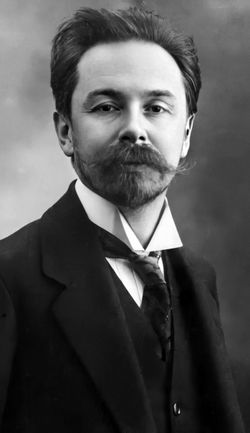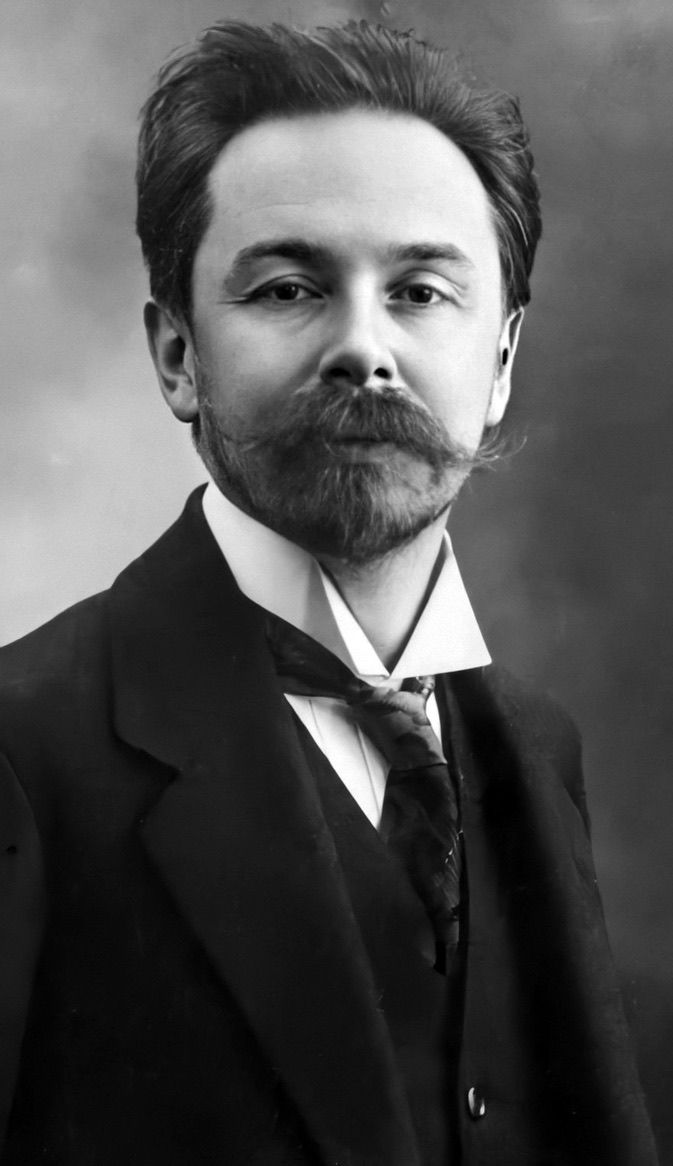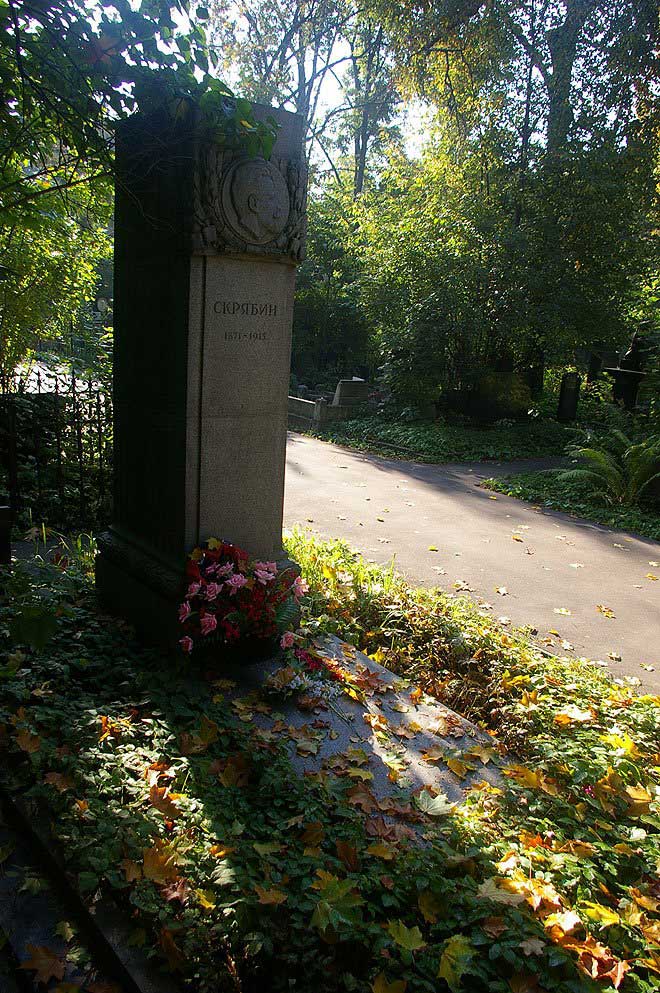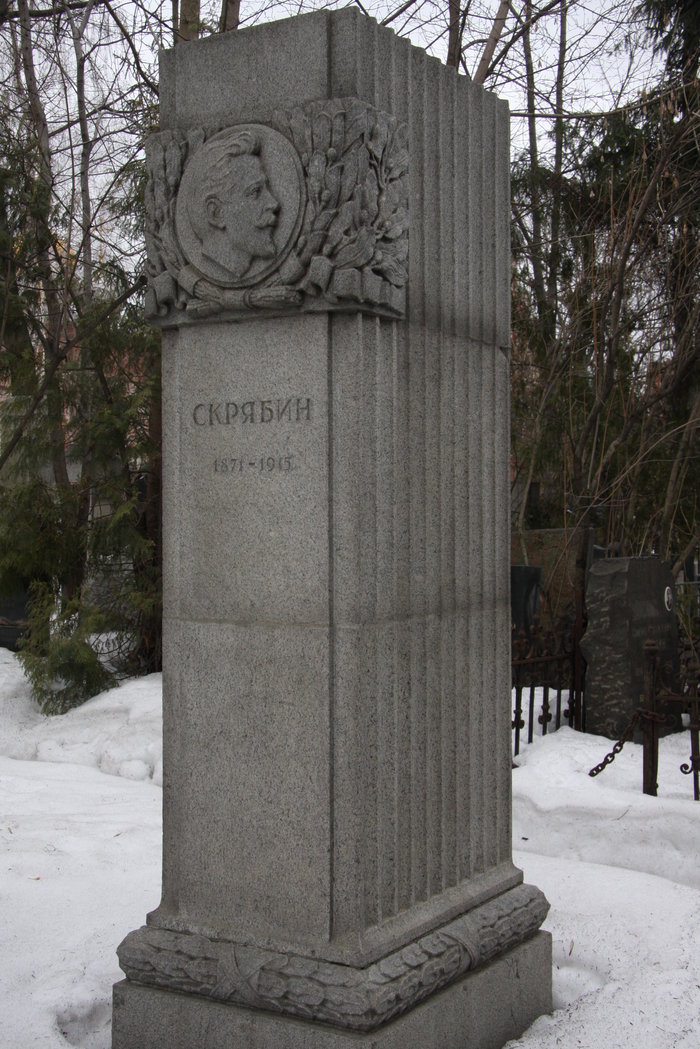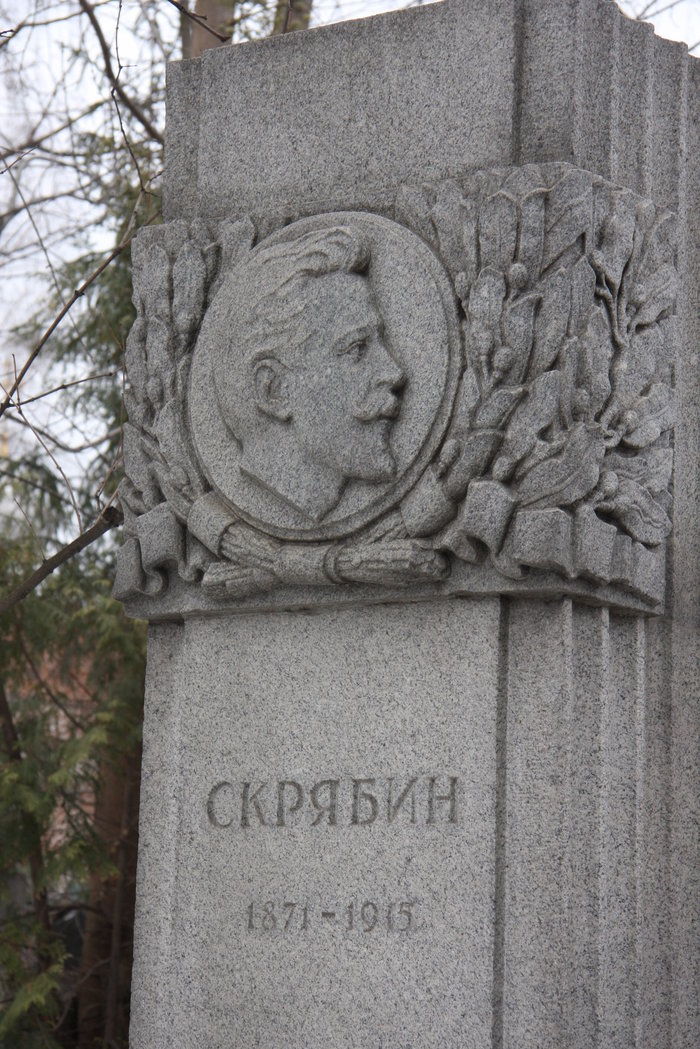Composer, Musician. He was a musician of the Russian Empire, whose mystical-minded music was considered radical and daring in its time, reflecting the tumultuous pre-revolutionary period of Russian art. In such orchestral works as "The Divine Poem" in 1905, "Poem of Ecstacy" in 1907, and "Prometheus, Poem of Fire" in 1910, and in the last six of his piano sonatas, which composed between 1906 and 1913, Scriabin used and in some cases foreshadowed atonal techniques similar to those of Arnold Schoenberg and his followers. He also wrote a large quantity of smaller piano pieces, including etudes, preludes, and impromptus. Scriabin was born in Moscow. He studied at the Moscow Conservatory and became a brilliant pianist, despite small hands that could barely stretch an octave on the keyboard. His early compositions, including the Piano Concerto in F Sharp Minor in 1897, were influenced by Chopin and the late Romantics. From 1904 he developed intense megalomania. Attaching great significance to the fact that he was born on Christmas Day as observed by the Russian Orthodox Church, Scriabin dreamed of a union of all the arts "with philosophy and religion in an individual whole to form a new gospel," with himself as Messiah. His wooly visions led him to saddle his work with all sorts of extra musical baggage. He intended "Prometheus" to be performed along with an elaborate color-coordinated lighting system, much like the lighting effects used in today's pop concerts; only lack of technological resources foiled his plan. In 1910 he toured with his colleague, Alexander Mogilevsky. Scriabin's manner of death was also unusual. While combing his long, curly mustache, he accidentally burst a carbuncle that had grown on his upper lip, and died from blood poisoning. Scriabin's music was innovative and original, but because he died fairly young and left no important disciples, its overall influence was negligible. His son, Julian Scriabin, showed budding promise as a composer before his tragic death at age 11.
Composer, Musician. He was a musician of the Russian Empire, whose mystical-minded music was considered radical and daring in its time, reflecting the tumultuous pre-revolutionary period of Russian art. In such orchestral works as "The Divine Poem" in 1905, "Poem of Ecstacy" in 1907, and "Prometheus, Poem of Fire" in 1910, and in the last six of his piano sonatas, which composed between 1906 and 1913, Scriabin used and in some cases foreshadowed atonal techniques similar to those of Arnold Schoenberg and his followers. He also wrote a large quantity of smaller piano pieces, including etudes, preludes, and impromptus. Scriabin was born in Moscow. He studied at the Moscow Conservatory and became a brilliant pianist, despite small hands that could barely stretch an octave on the keyboard. His early compositions, including the Piano Concerto in F Sharp Minor in 1897, were influenced by Chopin and the late Romantics. From 1904 he developed intense megalomania. Attaching great significance to the fact that he was born on Christmas Day as observed by the Russian Orthodox Church, Scriabin dreamed of a union of all the arts "with philosophy and religion in an individual whole to form a new gospel," with himself as Messiah. His wooly visions led him to saddle his work with all sorts of extra musical baggage. He intended "Prometheus" to be performed along with an elaborate color-coordinated lighting system, much like the lighting effects used in today's pop concerts; only lack of technological resources foiled his plan. In 1910 he toured with his colleague, Alexander Mogilevsky. Scriabin's manner of death was also unusual. While combing his long, curly mustache, he accidentally burst a carbuncle that had grown on his upper lip, and died from blood poisoning. Scriabin's music was innovative and original, but because he died fairly young and left no important disciples, its overall influence was negligible. His son, Julian Scriabin, showed budding promise as a composer before his tragic death at age 11.
Bio by: Bobb Edwards
Family Members
Advertisement
See more Scriabin memorials in:
Records on Ancestry
Sponsored by Ancestry
Advertisement
